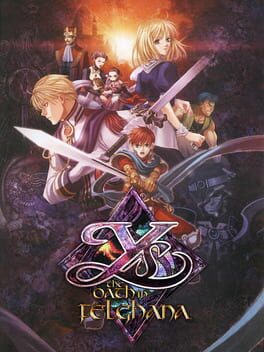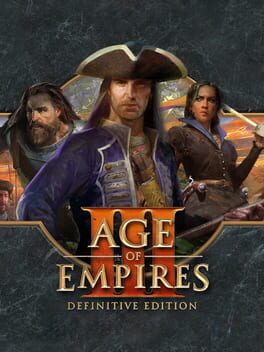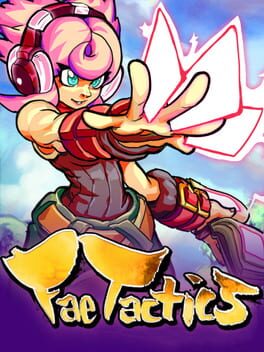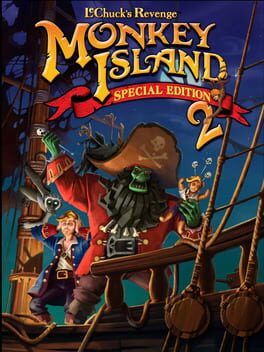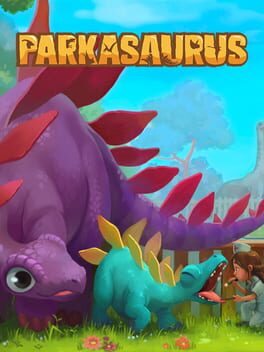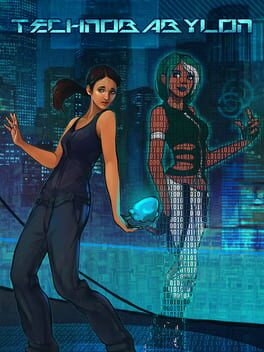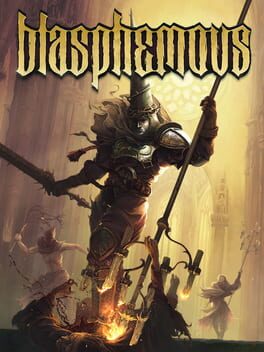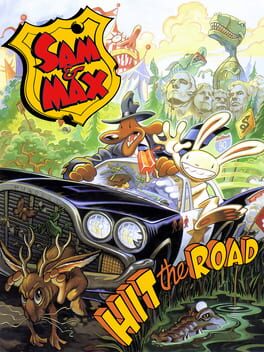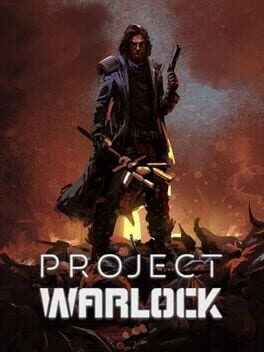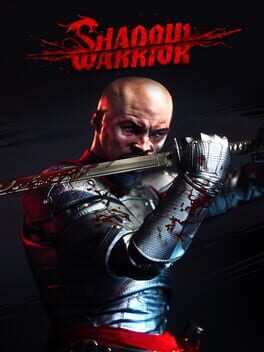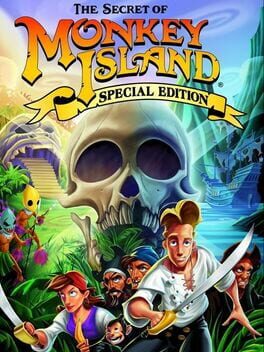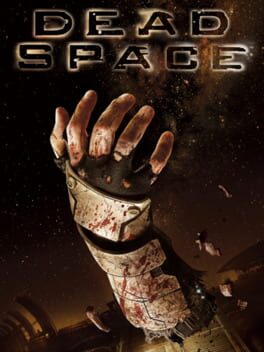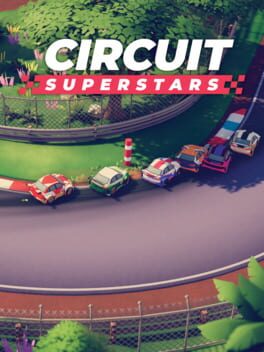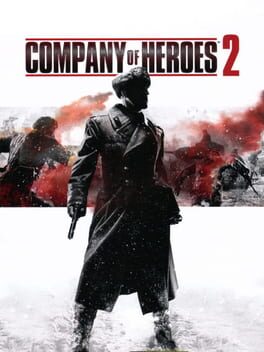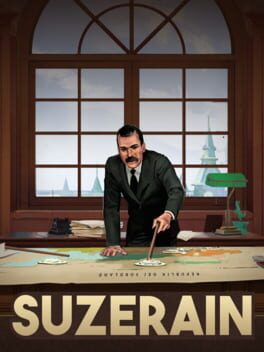Conger_Conger
Ys: Oath in Felghana is everything one would expect from the Ys series; good music, fast paced action and masochistic difficulty. This game belongs to the "one character, three kinds of magic" gameplay style, which also includes Ys: The Ark of Napishtim and Ys: Origin.
I should also mention that Oath in Felghana is a remake of Ys III, but it's not strictly necessary to play the Ys games in order, although it does enhance the story aspect if you do. This entry has voice acting too, but it's trash so I recommend lowering the voice volume to 0.
However, the music remains excellent and it's possible to play with the older versions too so that's neat. This isn't a 1:1 remake either (especially since the original is a sidescroller) so there are new bosses, enemies and such. I think the new content in the second portion of the game is specially good, once you have all the magic types and encounters are designed for that.
That being said, I have some reservations about certain bosses in the nightmare difficulty, which is usually the best to play since it gives enemies new attacks instead of merely inflating their health values. The Ys series is largely skill based so it's a bit of a shame that Gyalva and Gildias exist to introduce a significant amount of RNG into the equation. Some stuff feels like a step backwards from The Ark of Napishtim and Origin.
To conclude, I think the game is pretty good. I would definitely recommend it to people who already like the Ys series and want more of it, or pretty much anyone who likes top-down action games. It's weaker than Origin, and possibly The Ark of Napishtim too, but it's still pretty good on its own right anyway.
I should also mention that Oath in Felghana is a remake of Ys III, but it's not strictly necessary to play the Ys games in order, although it does enhance the story aspect if you do. This entry has voice acting too, but it's trash so I recommend lowering the voice volume to 0.
However, the music remains excellent and it's possible to play with the older versions too so that's neat. This isn't a 1:1 remake either (especially since the original is a sidescroller) so there are new bosses, enemies and such. I think the new content in the second portion of the game is specially good, once you have all the magic types and encounters are designed for that.
That being said, I have some reservations about certain bosses in the nightmare difficulty, which is usually the best to play since it gives enemies new attacks instead of merely inflating their health values. The Ys series is largely skill based so it's a bit of a shame that Gyalva and Gildias exist to introduce a significant amount of RNG into the equation. Some stuff feels like a step backwards from The Ark of Napishtim and Origin.
To conclude, I think the game is pretty good. I would definitely recommend it to people who already like the Ys series and want more of it, or pretty much anyone who likes top-down action games. It's weaker than Origin, and possibly The Ark of Napishtim too, but it's still pretty good on its own right anyway.
This "Definitive Edition" introduces some nice quality of life changes to what was already a very enjoyable game. I could do without the improved graphics, but it's hard to go back to the version where you can't zoom out as much or customize the UI and hotkeys. Overall, I would say this remake is a complete success in that front.
Other changes which don't affect gameplay have been made for the sake of authenticity, although some are just weird like changing "colonial age" to "commerce age". I'm unsure of what that accomplishes exactly.
I'm also not a fan of the name because "Definitive Edition" is normally reserved for the version that contains the full experience, but they have added more factions to the game as DLC after release. I don't think there's anything wrong with them making more content, far from it, but I would expect the people who don't want to put the word "colony" in their remake to be more careful with words.
Other changes which don't affect gameplay have been made for the sake of authenticity, although some are just weird like changing "colonial age" to "commerce age". I'm unsure of what that accomplishes exactly.
I'm also not a fan of the name because "Definitive Edition" is normally reserved for the version that contains the full experience, but they have added more factions to the game as DLC after release. I don't think there's anything wrong with them making more content, far from it, but I would expect the people who don't want to put the word "colony" in their remake to be more careful with words.
2020
The extent of the mechanical depth of Fae Tactics is evident since the first time you mouse over a character, the complexity of the combat is embedded within the characters themselves in the form of elemental affinity, passive skills, reactions, assists, etc. Due to all the important information being readily available, the combat is highly based on hard counters. There's even a permanently available elemental chart which can be brought up by holding the space bar.
On a similar note, Fae Tactics also follows the honored SRPG tradition of allowing the player to recruit enemy monsters to their party. I think this is a nice addition to a game that otherwise lacks a traditional progression system. As an example, the player might not get new skills from a level up, but completing missions can potentially result in a new party member, spell or equipment upgrade instead. This is a trade-off more than anything because the usual job system is completely absent.
In terms of presentation, the game is colorful and flashy, I'm not a fan of most character designs, but I do realize that's subjective. However, what does deserve a lot of well earned praise is the sound design, the soundtrack is delightful to listen to and there are distinctive sound effects for buffs, debuffs, kills, different movement types, etc. I could almost play the game blindfolded, it's awesome.
On the other hand, I don't have the same degree of praise for the story. Without spoiling it, there's a decent mixture of lighthearted and surprisingly dark moments, and it's clear that a lot of thought went into creating different locations, cultures and characters. What stopped it from being great in my opinion is that the main plot is highly compartmentalized, each "chapter", so to speak, goes over a new character, their personal struggle and the culture they inhabit, only to be basically forgotten by the time the next character is introduced. All things considered, I don't think the writing is bad overall, perhaps a few more campfire interactions would have fixed my problems with the storytelling.
To conclude, I think Fae Tactics is a good addition to the library of any SRPG fan. It's easy to understand, colorful, and the biggest problems I could point out about it were purely subjective. It's a really sweet game overall.
On a similar note, Fae Tactics also follows the honored SRPG tradition of allowing the player to recruit enemy monsters to their party. I think this is a nice addition to a game that otherwise lacks a traditional progression system. As an example, the player might not get new skills from a level up, but completing missions can potentially result in a new party member, spell or equipment upgrade instead. This is a trade-off more than anything because the usual job system is completely absent.
In terms of presentation, the game is colorful and flashy, I'm not a fan of most character designs, but I do realize that's subjective. However, what does deserve a lot of well earned praise is the sound design, the soundtrack is delightful to listen to and there are distinctive sound effects for buffs, debuffs, kills, different movement types, etc. I could almost play the game blindfolded, it's awesome.
On the other hand, I don't have the same degree of praise for the story. Without spoiling it, there's a decent mixture of lighthearted and surprisingly dark moments, and it's clear that a lot of thought went into creating different locations, cultures and characters. What stopped it from being great in my opinion is that the main plot is highly compartmentalized, each "chapter", so to speak, goes over a new character, their personal struggle and the culture they inhabit, only to be basically forgotten by the time the next character is introduced. All things considered, I don't think the writing is bad overall, perhaps a few more campfire interactions would have fixed my problems with the storytelling.
To conclude, I think Fae Tactics is a good addition to the library of any SRPG fan. It's easy to understand, colorful, and the biggest problems I could point out about it were purely subjective. It's a really sweet game overall.
Monkey Island 2 Special Edition improves upon its predecessor in multiple ways, but I can't help but think that some of the gameplay was compromised for the sake of comedy. I realize this aspect is subjective, and the writing is generally good, except for the ending.
This title is very similar to the first entry in the series so it's unlikely to change the opinion of someone who didn't like The Secret of Monkey Island. The writing once again contains a high amount of references and meta commentary, particularly aimed at the events of the previous game.
The "remastered" graphics are much better this time around too. It's also possible to play with the classic art style, but modern voice over without modding the game. As a re-release, this "Special Edition" is absolutely superior to the equivalent for The Secret of Monkey Island.
Overall, Monkey Island 2 is a highly entertaining point and click adventure game and I would recommend it to anyone who's played and enjoyed the first entry.
This title is very similar to the first entry in the series so it's unlikely to change the opinion of someone who didn't like The Secret of Monkey Island. The writing once again contains a high amount of references and meta commentary, particularly aimed at the events of the previous game.
The "remastered" graphics are much better this time around too. It's also possible to play with the classic art style, but modern voice over without modding the game. As a re-release, this "Special Edition" is absolutely superior to the equivalent for The Secret of Monkey Island.
Overall, Monkey Island 2 is a highly entertaining point and click adventure game and I would recommend it to anyone who's played and enjoyed the first entry.
2020
Parkasaurus is a lot of fun to play, it's colorful, accessible and the subject matter is highly charming. The game definitely leans closer to the casual side of management sims, I'm unsure if it's even possible to fail a scenario, but the main campaign is varied enough that this wasn't an issue for me.
The developers were also smart to embrace a cartoony art style instead of focusing too much on the graphics, although I have to admit that I prefer the "realistic" dinosaur models. The rest of the game is equally lighthearted, I think the only reference to death I found was in a fast food building.
The most important upside of the casual difficulty is the degree of creativity afforded to the player in return, designing good looking enclosures is effortless thanks to intuitive terraforming tools and simple parameters. The grid design also helps streamline things and it's something I prefer on management games despite the simplicity.
I think Parkasaurus is a lot of fun, but if I had to criticize something I think the UI could do with a bit more customization for font size, colors, etc. Also, the dinosaur tier system didn't make much sense to me, it feels completely arbitrary. I'd rather have a different mechanic in place, like synergies between dinosaur families, specialization or dynamic appeal. I mean they implemented the latter for french fry stands. Not to mention it's inevitable that someone's favorite dino will end up in the lowest tier.
To conclude, I would recommend Parkasaurus to anyone who has a casual interest on dinosaurs and management sims. It's a really fun, lighthearted game that allows for a great deal of creativity. I generally like more complex games, but this one still won me over.
The developers were also smart to embrace a cartoony art style instead of focusing too much on the graphics, although I have to admit that I prefer the "realistic" dinosaur models. The rest of the game is equally lighthearted, I think the only reference to death I found was in a fast food building.
The most important upside of the casual difficulty is the degree of creativity afforded to the player in return, designing good looking enclosures is effortless thanks to intuitive terraforming tools and simple parameters. The grid design also helps streamline things and it's something I prefer on management games despite the simplicity.
I think Parkasaurus is a lot of fun, but if I had to criticize something I think the UI could do with a bit more customization for font size, colors, etc. Also, the dinosaur tier system didn't make much sense to me, it feels completely arbitrary. I'd rather have a different mechanic in place, like synergies between dinosaur families, specialization or dynamic appeal. I mean they implemented the latter for french fry stands. Not to mention it's inevitable that someone's favorite dino will end up in the lowest tier.
To conclude, I would recommend Parkasaurus to anyone who has a casual interest on dinosaurs and management sims. It's a really fun, lighthearted game that allows for a great deal of creativity. I generally like more complex games, but this one still won me over.
2015
I'm surprised that Technobabylon isn't more well known because it's one of my favorite adventure games. What I like the most about it is probably the writing, the setting feels very fleshed out thanks to the news bulletins and the topics that characters discuss with each other. It feels like there's a lot more going on in the world than what's immediately apparent. Not to mention the voice acting is rock solid.
Besides that, the presentation is good enough to prevent pixel hunting and most puzzles are straightforward, so Technobabylon manages to avoid some of the most common shortcomings of point n' click adventure games. Some puzzles even have alternative solutions so that's neat.
What I didn't enjoy about the game is how depressing it can get. I guess that's an inevitable part of the experience since it's a cyberpunk setting, but it's just demoralizing how almost every character in the game is some sort of degenerate. I guess I'm ok with this sort of thing as long as there's a based dialogue option, but the game might be a bit too serious for some.
Anyways, Technobabylon is great and I totally recommend it. Could even be a decent introduction to Cyberpunk video games in general.
Besides that, the presentation is good enough to prevent pixel hunting and most puzzles are straightforward, so Technobabylon manages to avoid some of the most common shortcomings of point n' click adventure games. Some puzzles even have alternative solutions so that's neat.
What I didn't enjoy about the game is how depressing it can get. I guess that's an inevitable part of the experience since it's a cyberpunk setting, but it's just demoralizing how almost every character in the game is some sort of degenerate. I guess I'm ok with this sort of thing as long as there's a based dialogue option, but the game might be a bit too serious for some.
Anyways, Technobabylon is great and I totally recommend it. Could even be a decent introduction to Cyberpunk video games in general.
2019
Blasphemous is a metroidvania with beautiful presentation and lots of catholic iconography that also takes a bit of inspiration from the Dark Souls series, namely the storytelling style and healing system.
I don't have much else to say, the game has solid controls, there's a solid rooster of enemies and bosses, and the experience is both focused and thematically consistent, but never monotonous. Everything looks like it belongs in a church that also wants to kill you.
I guess a potential negative I could mention is that a guide is most likely required to unlock certain things as the game is a little too cryptic at times. However, secrecy never gets in the way of beating the game, it's only optional content that can potentially be missed.
To conclude, I would recommend Blasphemous to anyone who enjoys metroidvanias, and isn't squeamish about blood or religious imagery.
I don't have much else to say, the game has solid controls, there's a solid rooster of enemies and bosses, and the experience is both focused and thematically consistent, but never monotonous. Everything looks like it belongs in a church that also wants to kill you.
I guess a potential negative I could mention is that a guide is most likely required to unlock certain things as the game is a little too cryptic at times. However, secrecy never gets in the way of beating the game, it's only optional content that can potentially be missed.
To conclude, I would recommend Blasphemous to anyone who enjoys metroidvanias, and isn't squeamish about blood or religious imagery.
Sam & Max Hit the Road features excellent writing and beautiful presentation, especially in the animation department, which is essential for slapstick humor. The freelance police always have something interesting and slightly cynical to say about all the oddities they find during their adventures, and don't shy away from unconventional methods to achieve their ends.
On that note, the game is sadly full of nonsensical puzzles that require going back and forth between different areas. Also, the elaborate animations I was praising earlier become sort of annoying when one is forced to watch them over and over again. As a result, the playable portion of the game is sadly the worst aspect about it.
To summarize, Sam & Max Hit the Road is great for every aspect except for the gameplay. I would recommend inspecting every miscellaneous object to hear Sam & Max comment on it and consulting a walkthrough every once in a while.
On that note, the game is sadly full of nonsensical puzzles that require going back and forth between different areas. Also, the elaborate animations I was praising earlier become sort of annoying when one is forced to watch them over and over again. As a result, the playable portion of the game is sadly the worst aspect about it.
To summarize, Sam & Max Hit the Road is great for every aspect except for the gameplay. I would recommend inspecting every miscellaneous object to hear Sam & Max comment on it and consulting a walkthrough every once in a while.
2018
Project Warlock can be described as an old school first person shooter with more combat, less maze wandering and a sick soundtrack.
The main campaign is divided into short levels and the player gets to visit a hub area in between stages to heal, buy upgrades and level up their stats, so the player to customize the main character's arsenal over time to some degree. There's also an easy to understand magic system that requires a bit of investment, but it can be just as powerful as weapon upgrades in the right situation.
Stage, weapon and enemy variety is solid. I don't think any designs are particularly memorable as they seem a little derivative in the context of the genre, but the art style of the game is elevated by some great pixel art and animations.
I would also like to add that the levels are generally less vertical than in most classic shooters, and also way smaller. As a result exploration is less important. I personally don't mind some maze wandering from time to time, but I know some people hate it. All there really is to find are secrets, but they weren't hid all that well.
Overall, I really enjoyed Project Warlock. Sometimes shooting monsters with a rocket launcher is all you need to have fun.
The main campaign is divided into short levels and the player gets to visit a hub area in between stages to heal, buy upgrades and level up their stats, so the player to customize the main character's arsenal over time to some degree. There's also an easy to understand magic system that requires a bit of investment, but it can be just as powerful as weapon upgrades in the right situation.
Stage, weapon and enemy variety is solid. I don't think any designs are particularly memorable as they seem a little derivative in the context of the genre, but the art style of the game is elevated by some great pixel art and animations.
I would also like to add that the levels are generally less vertical than in most classic shooters, and also way smaller. As a result exploration is less important. I personally don't mind some maze wandering from time to time, but I know some people hate it. All there really is to find are secrets, but they weren't hid all that well.
Overall, I really enjoyed Project Warlock. Sometimes shooting monsters with a rocket launcher is all you need to have fun.
2013
A remake of the original Shadow Warrior (now called Shadow Warrior Classic) that's not very similar to the original, but still a good game all things considered.
This title is closer to something like Serious Sam, Painkiller or the newest DOOM reboot. There is very little exploration and the player is often locked in increasingly difficult arenas until they defeat all the enemies that spawn. This isn't a bad system and there's enough weapon and enemy variety to justify the average 12 hour runtime.
Shadow Warrior (2013) further differentiates itself by placing a large focus on melee combat, which is both fun to use and highly effective in dispatching most enemies.
The game also really surprised me by having a solid story that manages to be surprisingly emotional despite the constant banter and humorous dialogue. This is an aspect in which this remake unquestionably surpasses the original.
Overall, I would say Shadow Warrior is probably one of the best remakes out there, it manages to keep enough aspects of the original to maintain its identity, but also innovates enough to be compelling on its own. I only wish the title wasn't identical to the first game because it makes it harder to look for information online.
This title is closer to something like Serious Sam, Painkiller or the newest DOOM reboot. There is very little exploration and the player is often locked in increasingly difficult arenas until they defeat all the enemies that spawn. This isn't a bad system and there's enough weapon and enemy variety to justify the average 12 hour runtime.
Shadow Warrior (2013) further differentiates itself by placing a large focus on melee combat, which is both fun to use and highly effective in dispatching most enemies.
The game also really surprised me by having a solid story that manages to be surprisingly emotional despite the constant banter and humorous dialogue. This is an aspect in which this remake unquestionably surpasses the original.
Overall, I would say Shadow Warrior is probably one of the best remakes out there, it manages to keep enough aspects of the original to maintain its identity, but also innovates enough to be compelling on its own. I only wish the title wasn't identical to the first game because it makes it harder to look for information online.
I've been interested in the adventure game genre for a while now, but for some reason I had never played The Secret of Monkey Island before, despite how important it is for the history of point and click video games. Well, I got to admit that I was missing out.
The Secret of Monkey Island is one of the funniest video games I've ever come across. A lot of the humor relies on breaking the fourth wall, which normally I don't like, but it managed to win me over regardless. The writing also relies on the popular conception of pirates in a way that I found highly endearing.
This "Special Edition" comes with some neat quality of life changes and runs great on modern systems, but I find the cartoony remastered graphics to be vastly inferior to the beautiful pixel art of the original. The fact that one can change the art style on the fly by pressing F10 is a neat technical trick though.
To conclude, I had some minor complaints about the gameplay, but honestly it's not a big deal. The Secret of Monkey Island is extremely accessible for an adventure title that originally released in 1990, it's an excellent game and has my full recommendation.
The Secret of Monkey Island is one of the funniest video games I've ever come across. A lot of the humor relies on breaking the fourth wall, which normally I don't like, but it managed to win me over regardless. The writing also relies on the popular conception of pirates in a way that I found highly endearing.
This "Special Edition" comes with some neat quality of life changes and runs great on modern systems, but I find the cartoony remastered graphics to be vastly inferior to the beautiful pixel art of the original. The fact that one can change the art style on the fly by pressing F10 is a neat technical trick though.
To conclude, I had some minor complaints about the gameplay, but honestly it's not a big deal. The Secret of Monkey Island is extremely accessible for an adventure title that originally released in 1990, it's an excellent game and has my full recommendation.
2008
For a game released back in 2008, Dead Space still looks and plays fantastic. Despite being a western response to Resident Evil 4, the title is highly original on its own right. Almost every piece of equipment is an industrial tool that happens to be extremely useful when the enemies are weak to dismemberment.
Every weapon has a niche, two firing modes, modular upgrades and aesthetic changes to go along with them. The developers spared no expense in order to make the game as detailed as possible.
On that note, the setting is similar to something like the Alien movies, technology may have advanced to the point where space travel is commonplace, but the futuristic tech feels largely mundane. Being a space miner is not that different from regular mining in terms of living standards afforded to the average worker. The game really sells you the idea that things weren't perfect even before the necromorph plague. In particular, I really like the advertising posters for different products, they have a lot of character.
However, this version of the game in particular has a lot of problems. Including forced mouse acceleration, physics tied to frame rate, control issues and frequent crashes. The PC port for Dead Space is sadly not the best, but the good news is that 14 years after release there are fanmade fixes for most of these shortcomings. Also, limiting the frame rate to 60 works wonders.
To conclude, I believe Dead Space is a great addition to the survival horror genre and I would recommend it to anyone with the patience to patch it.
Every weapon has a niche, two firing modes, modular upgrades and aesthetic changes to go along with them. The developers spared no expense in order to make the game as detailed as possible.
On that note, the setting is similar to something like the Alien movies, technology may have advanced to the point where space travel is commonplace, but the futuristic tech feels largely mundane. Being a space miner is not that different from regular mining in terms of living standards afforded to the average worker. The game really sells you the idea that things weren't perfect even before the necromorph plague. In particular, I really like the advertising posters for different products, they have a lot of character.
However, this version of the game in particular has a lot of problems. Including forced mouse acceleration, physics tied to frame rate, control issues and frequent crashes. The PC port for Dead Space is sadly not the best, but the good news is that 14 years after release there are fanmade fixes for most of these shortcomings. Also, limiting the frame rate to 60 works wonders.
To conclude, I believe Dead Space is a great addition to the survival horror genre and I would recommend it to anyone with the patience to patch it.
2021
2013
Company of Heroes 2 is pretty much a straight improvement over the first entry in the series, but it worries me just how much content is locked behind microtransactions and loot drops. For the sake of comparison, the first game also had standalone expansions for new factions so that hasn't changed, but the commanders, skins and such are a little ridiculous. Not to mention the in-game ads for other Relic products.
Apart from that, I like that the main campaign focuses on the Eastern Front rather than the Americans for once, but it does fall into the typical clichés about the Soviet Army and it's not particularly well written or interesting. However, the missions are alright so I'd say that the level of quality is about on par with the first game.
I think I would recommend the game to people who want a solid RTS or just like WW2 as it's pretty accessible for the genre anyways.
Apart from that, I like that the main campaign focuses on the Eastern Front rather than the Americans for once, but it does fall into the typical clichés about the Soviet Army and it's not particularly well written or interesting. However, the missions are alright so I'd say that the level of quality is about on par with the first game.
I think I would recommend the game to people who want a solid RTS or just like WW2 as it's pretty accessible for the genre anyways.
2020
Suzerain is a text based adventure about the president of a young, struggling republic. The stereotype of a political game is that they are vehicles for poorly disguised propaganda, so I'm glad this one actually manages to represent the subject matter in a mature and fairly realistic manner. Particularly the fact that, just like in real life, it's impossible to please everyone.
The story is also generally well written and it can change a whole lot depending on the player's choices, although I think some events may be semi-random. Apart from that, there's not much else about the gameplay as it's a text adventure after all, the player is limited to picking dialogue choices and ticking boxes every once in a while.
On the topic of limitations, one would think a game with so many possible story paths would have a lot of replay value, but sadly I believe this isn't the case because of the mandatory ironman mode. I think that's fine and a completely valid design choice for the first playthrough, but it's annoying to be made to repeat the entire first chapters every time. It doesn't help that some actions have dumb consequences, such as a tax on imported sumptuary goods instantly shrinking the economy of a developing nation by 20% or how refusing to ban a violent organization doesn't have any negative repercussions for public order.
Overall, Suzerain has my full endorsement for the first playthrough, but I'm somewhat disappointed by the lackluster replay experience.
The story is also generally well written and it can change a whole lot depending on the player's choices, although I think some events may be semi-random. Apart from that, there's not much else about the gameplay as it's a text adventure after all, the player is limited to picking dialogue choices and ticking boxes every once in a while.
On the topic of limitations, one would think a game with so many possible story paths would have a lot of replay value, but sadly I believe this isn't the case because of the mandatory ironman mode. I think that's fine and a completely valid design choice for the first playthrough, but it's annoying to be made to repeat the entire first chapters every time. It doesn't help that some actions have dumb consequences, such as a tax on imported sumptuary goods instantly shrinking the economy of a developing nation by 20% or how refusing to ban a violent organization doesn't have any negative repercussions for public order.
Overall, Suzerain has my full endorsement for the first playthrough, but I'm somewhat disappointed by the lackluster replay experience.
